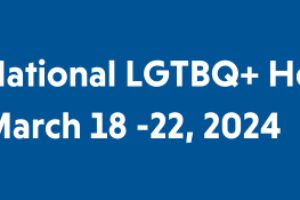
Correction: In an earlier version of this article, it stated that June was BIPOC Mental Health Awareness Month
July is BIPOC (Black, Indigenous, and People of Color) Mental Health Awareness Month. Mental health is a critical component of overall well-being, yet it remains a largely stigmatized and neglected aspect of healthcare, particularly within historically marginalized communities. As a Community Health Center, we are dedicated to serving diverse populations. Axis recognizes the unique challenges faced by BIPOC (Black, Indigenous, and People of Color) communities in accessing mental health services. Providing culturally responsive care and raising awareness are essential in addressing these disparities and fostering healthier, more resilient communities. BIPOC communities often encounter numerous barriers to mental health care, including:
- Stigma and Cultural Beliefs: Often times mental health issues are viewed through a lens of stigma, shame, and misunderstanding. This can discourage BIPOC individuals from seeking help, fearing judgment or being ostracized from their community. To help combat these fears, Axis works within our community to establish trust so that our patients feel supported in getting the care they need. We prioritize building long-term relationships with our patients, fostering an environment where they feel safe and valued.
- Language and Communication Barriers: Effective mental health care relies heavily on clear communication between providers and patients. For non-English-speaking individuals or those with limited English proficiency, accessing care may be daunting and fraught with misunderstandings. We actively engage with community leaders and organizations to spread awareness about the importance of mental health. At Axis, we offer interpretation and translation services to ensure that language barriers do not hinder access to care. Bilingual staff and translated educational materials help patients navigate the healthcare system more effectively.
- Economic Disparities: BIPOC communities are disproportionately affected by poverty compared to white populations. This may limit their ability to afford mental health services and medications. By offering sliding scale fees and assisting with insurance enrollment, Axis makes mental health services more accessible. We also collaborate with local agencies to provide additional support and resources.
By continuing to prioritize mental health awareness, reducing stigma, and providing accessible, culturally competent care, we can make significant strides in improving mental health outcomes for everyone. To further serve our community, Axis also offers a Mental Health Urgent Care program called Axis Bridge, which is available to all community members ages 5 and up. Please visit https://axishealth.org/axis-bridge-mhuc/ for more information.
For more information Axis’s complete mental health services, please visit our website at https://axishealth.org/mental-health/




